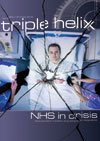Large new research review
Review by Philippa Taylor
CMF Head of Public Policy
A recent Cochrane review of studies on school-based sex education, combining peer-reviewed data from more than 55,000 young people from Europe, Latin America and sub-Saharan Africa, has found that the mainstay of the current approach to sex education is not working. (1)
School-based sexual and reproductive health programmes are widely accepted and implemented as an approach to reducing high-risk sexual behaviour among adolescents, however when the Cochrane review looked at the impact of such programmes on pregnancy rates and sexually transmitted infections (STIs) they found no significant reductions in either among the young. Lead author of the review, Dr Mason-Jones said: 'As they are currently designed, sex education programmes alone probably have no effect on the number of young people infected with HIV, other STIs or the number of pregnancies...' (2)
More positively, the review also found that a small cash payment, or free school uniform, can encourage students to remain at school, especially in places with financial barriers to attending, which helps to reduce pregnancy rates and STIs.
The authors say that previous reviews of sex education programmes are based on self-reported behaviours of young people, which are prone to bias and are notoriously unreliable, whereas the Cochrane review only included studies featuring objective measurable biological outcomes from records or tests of pregnancy and STIs. When the authors excluded studies that were at high-risk of bias, they found 'no effect' on long-term pregnancy prevalence in the remaining studies.
Clearly further objective measurable evidence is needed, because if current sex education programmes are not working to reduce pregnancy and STIs among the young, this is highly significant. It may be that current primary prevention strategies for STIs and unintended pregnancies need to be re-evaluated.
Dr Trevor Stammers in a 2007 BMJ editorial warned that promoting correct use of condoms will not lead to a reduction in STI rates and pregnancies because much teenage sex has little to do with sex itself but is connected with a search for meaning, identity and belonging. (3) The Cochrane review cites the need to address wider structural issues (in this case, educational achievement). Stammers would add parental influence as well. Certainly, a much more comprehensive approach is key to improving outcomes, incorporating parental involvement and opportunities for young people.
































